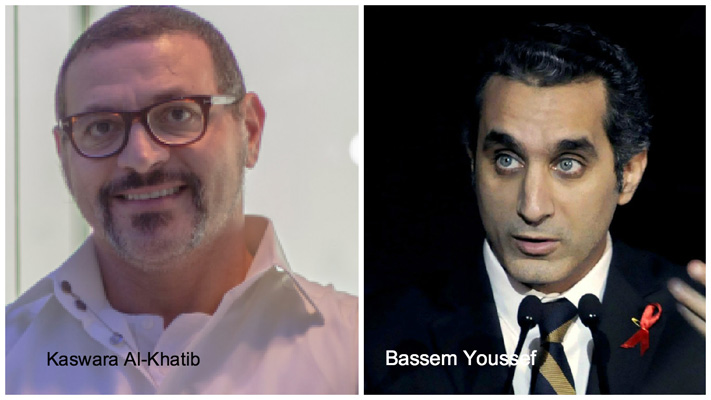Successful marketers have reiterated time and again the virtue of a people-first approach. Two prominent names from media industry in the Middle East & North Africa region echoed this approach for content as well, pointing out that content should first meet an existing demand.
Bassem Youssef, Satirist & Egyptian TV personality observed that in 2011, when he had first begun to dabble with the satire and humour genre, there wasn’t any expertise or knowhow on how some of these special interest channels worked. “We did not know if we would get the viewership but could see that the content was working with people, they could connect with it and it was talking to them. People wanted us to pursue the content,” he recalled.
This was also the same time that Kaswara Al-Khatib, Chairman and CEO of UTURN Entertainment saw the rise of the online viewer community in Saudi Arabia. “The only way to be known at that time was through television. But a new scenario was emerging in 2011. We came to a TV channel, my fan base already tried and tested. We felt extremely empowered and that is how UTURN came to be. We never gave up our digital rights to any TV channel and that helped us.” UTURN Entertainment is a leading online media network. The UTURN entertainment YouTube channel provides local, interactive and professional content for onliners.
The two leaders believe that the online world has given an edge to content creators, and that as consumers look to content on a screen of their preference, the attention to online content is creating new success stories.
“We were always very aware that we were on TV but we made sure we were online too. Anyone can watch 60 seconds but the challenge is to make people watch an hour and half content. We achieved this by using genres such as satire and humor but advertisers need to identify and understand where this genre can work with their objectives. We didn’t work as activists but we brought more people to the people and brought agenda that was impacting people, not authorities. Being true to your brand makes a huge difference,” advised Mr Youssef.
Mr Al-Khatib had similar advice when he said that advertisers should understand that they must engage. “It cannot be typical advertising like it once was. Today people have power; they choose, decide, they comment and give feedback. And it is important to understand how this can work in our favor,” he said.
Mr Youssef aptly summed up the conversation when he remarked, “Content today has become for the people, of the people, by the people.”





